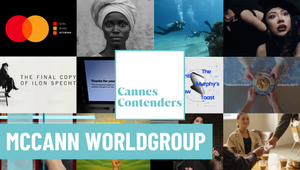
Human Truths One Year Later: Lessons for Success in a Time of Coronavirus

Photo source: Thomas Quine on Flickr
Over the course of the last year, we have been tracking the impact of the pandemic on universal human truths. We know that people across Europe and the UK have been considering what truly matters, with nearly half of Europeans saying that they believe that the world will forever be changed by the pandemic. In our ongoing series, ‘Human Truths in a Time of Coronavirus’, we have explored how people around the world have reassessed the fundamental human truths and how brands, businesses, and organisations can respond in a meaningful way.
As we enter the second year of the pandemic and search for a path to renewal, we have invited thought leaders from diverse sectors and areas of expertise from across Europe and the UK to reflect on what they have changed their mind about when it comes to each of these truths. In this fifth instalment of a six-part series, we have asked our contributors to reflect on what they have changed their mind about when it comes to the human truth of success.
In the earliest days of the pandemic, a meme circulated on social media reminding us that William Shakespeare had written not just one, but three, of his tragedies while sequestered during an outbreak of the bubonic plague in London. Few could identify with that aspiration as one out of five people worried that their nations would run out of necessary supplies. Indeed, one in ten people told us they were altogether frustrated with celebrities and the trappings of fame.
For some, the eventual ‘return to normal’ was the promise of ultimate success, with approximately one in four Europeans expecting this to occur within a year. For others, this would only ever be possible when either a vaccine or a cure was available (25%). Even with a vaccine being rolled out in countries across the region, Europeans feel that their governments have ultimately let them down (27%).
The pandemic has shined a light on the building blocks of success. In the process, it has not only highlighted existing inequalities (32%), but it has also revealed a lack of leadership (38% Europe; 44% UK). It is probably no surprise then that Europeans are nearly equally divided when it comes to the role that brands may play in supporting their success: 47% wish that brands understood their frustrations, while 53% expect brands to provide them with dreams.
In this instalment, our contributors reflect on the lessons that they have learned when it comes to their vision of success. Their considerations draw into focus the fact that today’s failures are the pathway to a more successful tomorrow, whether that is on a personal, societal, or global scale. Ultimately, they demonstrate how the singular event of the pandemic has prompted them to interrogate the optimisation of social practices.
The inequalities exposed in the pandemic are a blueprint for a more successful society.
ALISON SEGAR: “It’s quite clear that we have a very divided society in different ways. This pandemic has made me realise very strongly that there are the haves and the have nots. Women generally speaking have taken a hit - doing a lot more of the multitasking or returning to more traditional roles. It's made me much more appreciative and much more aware of frontline worker jobs; the sort of unseen but necessary work that we need. They are the system relevant people; they are keeping all of these things going and they have shown huge amounts of courage. They do deserve those pay rises which I hope are going to come. I hope there's going to be a different debate about how we value different parts of society. I also hope that women are going to get themselves into a much better place than they're in right now.”
Real success comes from the capacity of one’s commitment.
RACHEL REESE: “You're seeing true role models coming forward. I call them ‘real’ models; these are activists who are raising money for people’s surgeries, treatments, and counselling. They are doing lots of talks for companies for free. They should be paid, but they do it anyway. The sector ‘real’ models are also trans/non-binary LGBT people who are standing up in organisations not to be famous, but just doing their jobs and thriving. Lockdown has highlighted more of these people. Allies are running towards the guns from unexpected places from the feminist movement defending trans women’s right to exist and also many from the LGB community. I think that's amazing. The Black Lives Matter movement has been incredibly supportive to the trans community and reciprocally we have supported them. That has really been a positive thing for me, so that's success.”
Success through controversy never lasts.
EMAN KELLAM: “I do feel like I found my definition of success in the last year. It’s very easy when navigating through the online entertainment space to watch what other people are doing instead of focusing on what you’re creating. It’s very common to dictate success through views, likes and other metrics. In the last year alone I’ve literally seen people do the craziest things all for the sake of clicks and likes. But success through controversy never lasts. My true definition of success is to find happiness when creating and if more people join the journey along the way, then that’s great.”
Be fully present rather than always present.
MOLLY FLUET: “Success to me means never saying no. COVID created internal turmoil for me; self-worth was tied up into success, and success meant being in the room, the church, or the bar. I had to start saying no. "No, I could not make the meeting because I have to run to the Eurostar before the border closed." "No, I cannot make the baptism." And, the worst, "No, I cannot make the funeral because of COVID restrictions." Each no broke me and made me feel like I had failed. Fewer meetings led me to be more prepared; as such, it allowed me to be more present (even more important on Zoom than in real life) in the meetings I was in. I attended a friend's funeral digitally, which was painful, but it allowed me to listen – truly listen – to the words said and be present in a new way. I had to redraw my boundaries for success. Success, to me, still means showing up, but what showing up means has changed. Presence has become the goal to achieve success. If I am more present, I can add more value, whether in-person or digital.”
When one’s success does not connect with one’s purpose, seek new benchmarks.
DR. ROCH DUNIN-WĄSOWICZ: “I've achieved markers of success that are both socially accepted and those have been inculcated in me by my surroundings. I bought a flat and then became a lecturer with an open-ended contract. I realised that I had much grander expectations of what it would do to me as a person. I'm not who I am because I live in London and have a flat there and I’m a lecturer; it's just part of my path which will always be embedded in me, but it's not the end of things. I am much more open to possibilities of what success will mean in the future and how it will manifest itself for me. Being able to take a step back I decided, well this is good, I'm not disputing this, but does it deliver the sense of fulfilment that it was supposed to? Absolutely not. It's a cultural construct like any other. I think it's about setting a new benchmark for myself.”
About the Authors and Contributors:
Dr. Rodney Collins, PhD, SVP, Director, McCann Worldgroup Truth Central
Dr. Roch Dunin-Wąsowicz, Lecturer, University College London, Social Research Institute
Molly Fluet, Executive Director, POLITICO Europe
Eman Kellam, TV presenter, YouTuber, Actor
Rachel Reese, Co-Founder, Global Butterflies
Alison Segar, Chief Strategy Officer, Germany, McCann Worldgroup
Harjot Singh, Global Chief Strategy Officer, McCann















